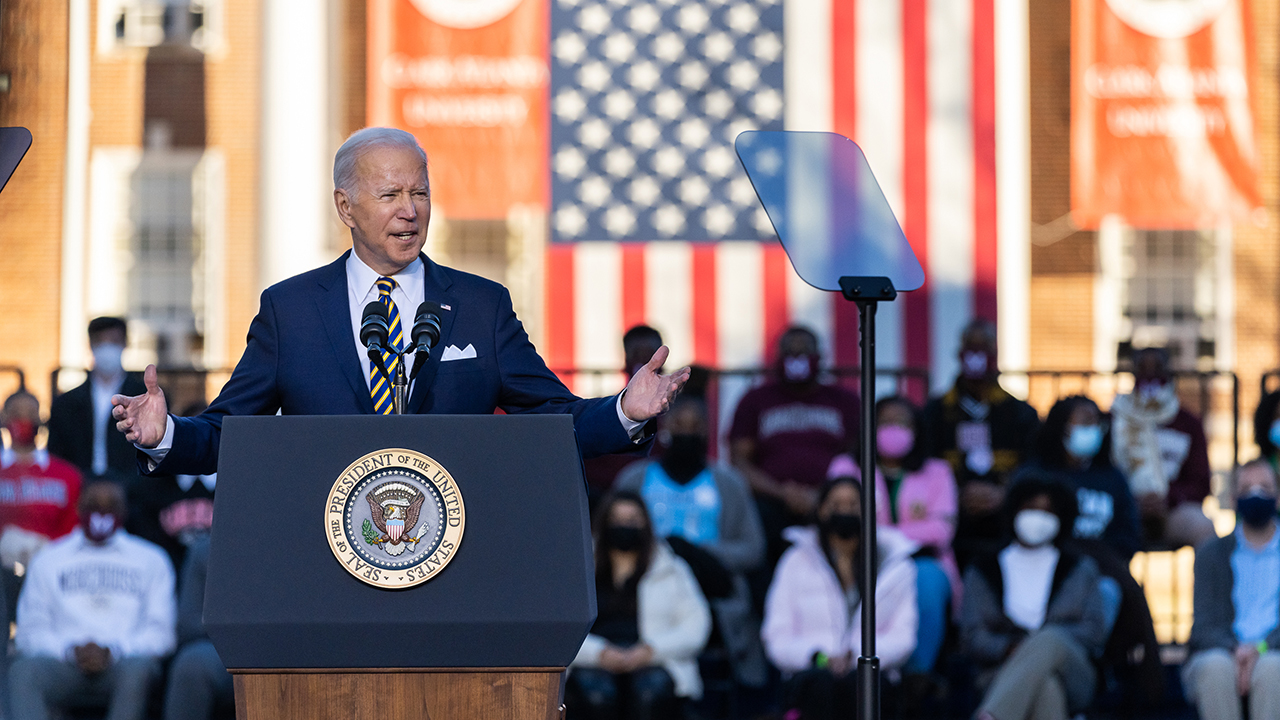What the anti-lynching law means for the country
Most hate crimes will not fall under the language written in the Emmett Till Anti-Lynching Act, according to a University of Detroit-Mercy law professor.

President Biden remarks on voting rights in January 2022.
The Emmett Till Anti-Lynching Act has now passed. It comes after a century of stalls and blockades — and well beyond the time when lynchings in the U.S. were as common as they were in the early 1900s.
That leaves questions about its significance and what it signals to America about the stories it tells itself.
“There are limits to what one criminal law can do.” — Leslie Scott, University of Detroit-Mercy.
Listen: The significance of an anti-lynching law becoming a federal hate crime.
Guest
Leslie Scott is an associate professor of law at University of Detroit-Mercy. She says the law relies on the idea of deterrence, which is flawed.
Scott notes the country should emphasize the need for providing social services to victims of hate crimes and their families, among other things.
“There are limits to what one criminal law can do,” Scott says.
Trusted, accurate, up-to-date.
WDET strives to make our journalism accessible to everyone. As a public media institution, we maintain our journalistic integrity through independent support from readers like you. If you value WDET as your source of news, music and conversation, please make a gift today.
